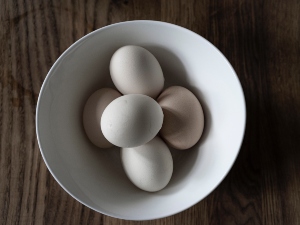
Getting an egg to the hatching stage can be an exciting, confusing and fulfilling experience. There are many books, audiotapes, videos and forums that go over chicken breeding and egg hatching. Even if you go through all of this, that doesn’t mean that your chick will hatch, one way to ensure that your chick will hatch is if the egg is fertilized. If you’re wondering as to how to tell if a chicken egg is fertile with water then read on
Eggs have an air bubble in them, the size of this air bubble increases in size over time and this is meat to give the growing chick inside air to breathe. Placing an egg in water is a commonly suggested method of checking whether the egg is fertile but this is not always accurate as the air bubble is present with or without the egg being fertilized
Table of Contents
How to tell if a chicken egg is fertile with water?
A water test to determine the fertility of a chicken egg is more of traditional idea than an academic science. The method bears some truth because fresh eggs do sink in water while older eggs float. The natural mechanism of an egg is to increase the size of the air bubble inside it as the days pass by. That would be very useful for a developing chick as its respiratory system progresses to breathing air. The process happens whether or not there is a chick growing. So, the egg will float in water after a few days regarless of if there is a chick inside or not.
At the other end of the incubation period (twenty-one days), it may be mistakenly thought that the chick died, but in truth, the egg was never fertilized in the first place. Chicks will never grow in the egg if the egg is unfertilized but the air bubble will still be present. The use of water to determine egg fertility is therefore not very accurate.
How else can you check if an egg is fertile?
The safest and more accurate way to determine the fertility of an egg is called candling. In this method, a light is shone on an egg in a dark room. The presence of reddish arteries towards a central dark blob (that is the developing chick), indicates the egg is fertilized and the chick is growing.
Candling should be done before the eggs are placed in an incubator and seven days after that. Ensure that any source of light that emits heat does not damage the eggs.
Can you hear a chick inside an egg?
During the first half of the egg’s incubation period, the chick is busy developing chicken body parts, so it is not possible to hear anything inside the egg. But towards the time they will be hatched and they have fully developed body parts, you will hear them chirping. This is usually just before hatching begins or when the first crack of the egg happens.
Should you help an egg hatch?
No, you should not help an egg hatch due to the risk of harming its fragile body. The eggs amniotic fluids are sticky and could have a fragile chick body part attached to the walls of the shell. Any attempt to help the chick hatch could result in damage of such body parts and result in loss of the chick. It is better to let the eggs hatch naturally and in their own time, usually within two days. If you are incubating you may adjust the humidity (about seventy percent) to encourage the hatching process.
Can it take longer than 21 days for a chick to hatch?
Even under natural incubation, some chicks may take longer than twenty-one days to hatch. Usually, the hen abandons eggs that did not hatch within two days of the incubation period. After incubation, give the chicks a maximum of three days to hatch and then use candling to determine if there is any hope of the chick hatching.
Conclusion
In conclusion, because eggs contain air bubbles, which are meant to give air to the growing chick as it grows, placing the egg in water and waiting to see if it floats is a suggested way to check whether an egg is fertilized. That being said, a chick will never grow in an unfertilized egg but the air bubble will still be present and thus the egg will still float. Thus, the only way to check if the egg is fertilized while the chick is still in the shell is to candle the egg. You may hear the chick making sounds in the later stages of development in the egg. Do not help the chick out of the egg as you can injure it, allow it to come out on its own as it can take longer than the incubation period to hatch
If you enjoyed this article then you may also be interested in other bird related articles. Here are some articles that you may be interested in: Warm water trick for hatching eggs, How to candle eggs with an iPhone, Chicken laying eggs without shell or membrane, why and what to do, How to tell if a bird egg is fertile, How to tell if chick is alive in egg

